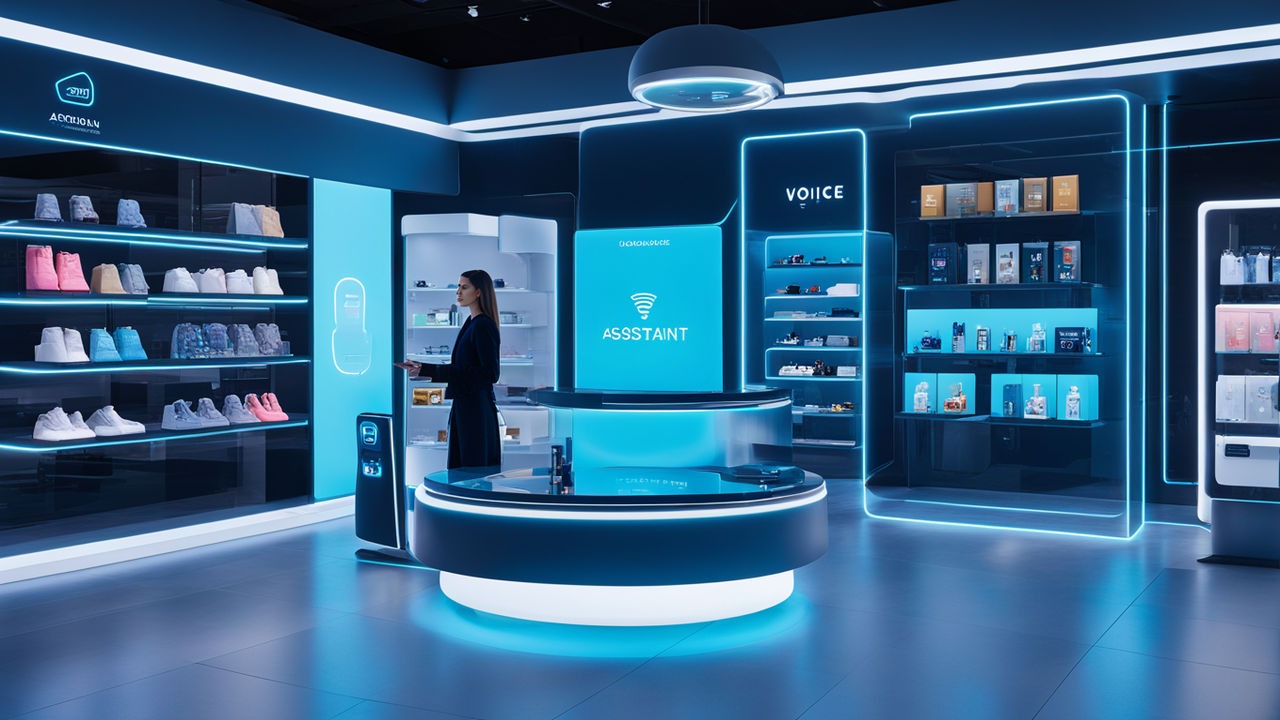Revolutionize Retail: The Evolution of Voice Commerce with AI Assistants
Introduction: The Rise of Voice Commerce
The retail landscape is undergoing a significant transformation with the advent of voice commerce, a trend driven by the proliferation of AI assistants. These digital helpers are changing how consumers interact with brands, offering a more personalized and convenient shopping experience. As AI technology continues to evolve, voice commerce is poised to become a dominant force in retail, bridging the gap between physical and online shopping experiences.
The Evolution of AI Assistants in Retail
AI assistants have come a long way since their inception. Initially, these technologies were limited to basic tasks like setting reminders or answering simple queries. However, advancements in natural language processing (NLP) and machine learning have transformed AI assistants into powerful tools capable of handling complex interactions, including facilitating transactions and providing personalized shopping recommendations.
Today, AI assistants like Amazon’s Alexa, Google Assistant, and Apple’s Siri are integral to the retail industry, enabling voice commerce. By leveraging cutting-edge AI technology, these assistants can understand and process user intent, making shopping as simple as speaking a few words.
How Voice Commerce is Transforming Retail
1. Enhancing Customer Experience
Voice commerce is revolutionizing customer interactions by providing a seamless, hands-free shopping experience. Shoppers can now order products, check the status of their orders, or even explore new items through voice commands. This level of convenience not only saves time but also enhances the overall shopping experience by reducing friction in the purchasing process.
For instance, integrating voice commerce with AI-driven personalization allows retailers to offer personalized shopping experiences, where AI assistants suggest products based on past purchases or preferences. This personalization, combined with the ease of voice commands, is setting a new standard in customer experience.
2. Streamlining Operations for Retailers
Voice commerce is not just beneficial for consumers; it also offers significant advantages for retailers. By integrating AI assistants into their operations, retailers can streamline the ordering process, reduce cart abandonment rates, and improve customer retention. Voice commerce also enables businesses to gather valuable customer data, which can be used to refine their marketing strategies and product offerings.
Moreover, voice commerce can be integrated with scalable microservices architecture, allowing retailers to manage high volumes of voice interactions efficiently. This integration ensures that the system remains responsive, even during peak shopping periods.
3. Driving Innovation in Retail Marketing
Voice commerce is driving innovation in how retailers market their products. Traditional advertising channels are being supplemented with voice search optimization, where brands optimize their content to be discoverable through voice search queries. This new approach to marketing requires a deep understanding of customer language and intent, which can be achieved through voice search optimization strategies.
Retailers are also experimenting with AI-driven voice advertisements, where personalized ads are delivered directly to consumers through their AI assistants. This method of advertising is more engaging and can lead to higher conversion rates, as it is tailored to the user’s preferences and delivered at the right moment.
The Challenges of Implementing Voice Commerce
While the benefits of voice commerce are clear, there are challenges that retailers must overcome to fully harness its potential. One of the primary challenges is ensuring that AI assistants can understand and process a wide range of accents, dialects, and languages. This requires ongoing investment in NLP and machine learning to improve the accuracy and reliability of voice recognition.
Another challenge is addressing consumer privacy concerns. As voice commerce involves collecting and processing large amounts of personal data, retailers must implement robust data protection measures to safeguard consumer information. Compliance with regulations such as GDPR is essential to maintain customer trust and avoid potential legal issues.
The Future of Voice Commerce: What’s Next?
The future of voice commerce looks promising, with continued advancements in AI and voice recognition technology. In the coming years, we can expect AI assistants to become even more sophisticated, capable of handling complex transactions and offering highly personalized shopping experiences. Voice commerce will likely expand beyond traditional retail into areas such as banking, healthcare, and travel, further transforming how consumers interact with businesses.
Retailers that embrace voice commerce and invest in the necessary technologies will be well-positioned to lead in this new era of retail. By integrating AI assistants into their customer experience strategies, businesses can offer a more convenient, personalized, and engaging shopping experience that meets the demands of today’s tech-savvy consumers.
Conclusion: Embrace the Future of Retail
Voice commerce is not just a passing trend; it is the future of retail. As AI assistants become more advanced, they will continue to revolutionize the shopping experience, offering unprecedented levels of convenience and personalization. Retailers that adapt to this shift and incorporate voice commerce into their strategies will be able to stay ahead of the competition and meet the evolving needs of their customers.
By understanding the impact of AI on retail and implementing the right technologies, businesses can harness the power of voice commerce to drive growth and innovation. The future of retail is here, and it’s time to embrace it.
Discover more from Just-CO
Subscribe to get the latest posts sent to your email.




